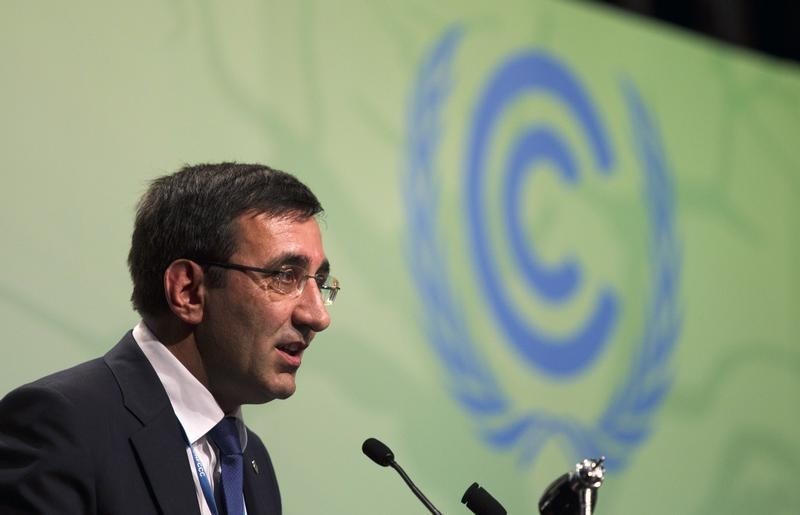By Orhan Coskun
ANKARA (Reuters) - Turkey's new deputy prime minister in charge of the economy said on Tuesday that growth and inflation would miss government targets this year but the political uncertainty which has hammered the lira would ease after a November election.
In his first interview since taking office less than two weeks ago, Cevdet Yilmaz told Reuters growth may reach 3 percent in 2015, short of the official 4 percent target, but broadly in line with market expectations. Inflation would end the year higher than expected but would fall in 2016, he said.
"Growth of around 3 percent for this year seems possible and appropriate," Yilmaz said, adding that the government would review its forecasts after seeing data for the second quarter, due to be released on Thursday.
A Reuters poll published in July forecast growth of 2.9 percent this year and 3.4 percent next, below the government targets of 4 and 5 percent respectively.
Yilmaz, a former state planning official who served as development minister for four years, was appointed last month to an interim government formed after the ruling AK Party lost its parliamentary majority in a June election. The temporary cabinet will lead Turkey until a new vote on Nov. 1.
Yilmaz - one of the architects of Turkey's "medium-term economic programmes", the three-year policy roadmaps it renews each year - took over from Ali Babacan, who had overseen the economy for the best part of a decade and was highly regarded by international investors.
His appointment comes at a difficult time.
With emerging markets already sliding, the lira has hit a series of record lows as investors fret over Turkey's politics, its renewed conflict with Kurdish militants in the southeast and its growing role in the fight against Islamic State in Syria.
The central bank, whose independence has been brought into question by President Tayyip Erdogan's repeated assertions that it should lower interest rates, has meanwhile been contending with stubborn inflation coupled with flagging growth.
Yilmaz said the bank would "continue to fulfil its duty" in the face of excessive lira volatility.
BETTER TO COME
The government's medium-term economic plans would continue to emphasise growth, keeping the current account deficit - Turkey's economic Achilles heel - under control, and fighting inflation, Yilmaz said, although he acknowledged that the latest data pointed to higher-than-expected inflation this year.
Consumer inflation climbed back above 7 percent in August, above forecasts and stoking fears of a worsening outlook. The government's target is 5 percent, although the central bank is forecasting 6.9 percent at year-end.
Polls suggest the AK Party will again struggle to win enough votes to form a single-party government in November, suggesting it may be forced back to the negotiating table to try to strike a coalition deal.
While a coalition could lead to less decisive policy-making, many investors are warm to the prospect of a "grand coalition" between the AKP and the main secularist CHP opposition, hoping such a deal could ease political tensions in a country deeply polarised by what will have been four elections in 18 months.
"I think the political situation after Nov. 1 elections will be a lot better for our economy. It will be a situation where, under any circumstances, there will be lower political uncertainty and where everyone will be able to see ahead in political terms," Yilmaz said.
"With the atmosphere of confidence arising from this, I think there'll be a better situation in Turkey in terms of foreign and domestic investment," he said, adding that economic reforms could then begin again.
In the meantime, economic data continues to disappoint. Industrial production rose just 0.3 percent year-on-year in July, well below forecasts and reinforcing the view that growth momentum is weakening, data showed on Tuesday.

Having hit a record low in the previous session, the lira